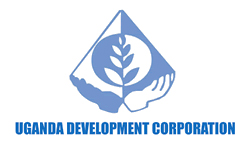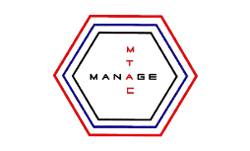Signing the Cooperation Agreement Between Ministry of Trade, Industry & Cooperatives and Financial Sector Deepening Uganda

I welcome you to this occasion of signing a Memorandum of Understanding (MoU) between the Ministry of Trade, Industry and Cooperatives (MTIC) and Financial Sector Deeping Uganda (FSDU). The partnership between the Ministry and FSDU is a demonstration of the Ministry’s commitment to build networks and collaborations to harness synergies and complementarities that can be found in different institutions and agencies to promote its mandate.
The main aim of the MoU is to promote the development of MSMEs and the legal and regulatory framework for competition and consumer protection. The objectives of the MoU are:
- Collaboration in the implementation of MSME policy;
- Collaboration in the development of the legal and regulatory framework for competition and consumer protection;
- Collaboration in undertaking research to enable MTIC promote best practices in MSME development;
- Collaboration in undertaking research to enable MTIC promote best practices in competition and consumer protection regulation;
- Collaboration to undertake study tours to benchmark on best practices and experiences of promotion of MSMEs.
- Collaboration to undertake study tours to benchmark on best practices and experiences regulating competition and consumer protection
Ladies and Gentlemen
The areas this MoU covers in MSMEs development and competition and consumer protection laws are very critical elements in the economic transformation of this Country.
Statistics from UBOS show that the MSMEs sector comprises about 1,100,000 enterprises, contributes 75% of GDP and employs approximately 2.5 million people; equivalent to 90% of total non-farm workers.
Although Uganda has been ranked as very enterprising, it is also ranked as the country with one of highest enterprise mortality rate. One out of 5 of every business started in Uganda dies before its first birthday. The high mortality rate and the inability to grow is because of the various challenges MSMEs face, including; limited access to affordable credit, unfair competition from cheap imported products, high level of informality, unfavorable regulatory regime, limited capacity for production, weak institutional capacity of business associations/clusters, multiple tax/fees regime, competition from cheap imported products; poor standards and quality of products, lack of information on market opportunities and market access requirements among others.
Many of our MSMEs are also informal on account of the difficulty and costs involved in registering a new business and the fear of the costs of regulatory compliance in running the business. In the informal economy, jobs and business activities are not registered or protected by the State. They don’t enjoy any social or economic benefits, and often have no titled or registered assets. This means they are inherently vulnerable, highly mobile, and insecure. As a consequence, these unregulated entities do not pay taxes, they find it difficult to enter contractual obligations and access credit from financial institutions.
In regards to the competition and consumer protection regulatory environment we still need to do a lot to detect, mitigate and penalize unfair practices which are still prevalent within the market.
As a result of liberalization, many players entered the market. This, if not adequately regulated, will create unfair competition; as unscrupulous businesses engage in noncompetitive practices and consumer exploitation. These practices are usually by big companies and they include; abuse of dominant position, price fixing, collusive tendering, refusal to supply and geographical limitation, misrepresentation of products and among others. Such practices erode the gains that would have accrued to honest producers and to consumers and unfairly suffocate the small businesses from competing in the market.
The Ministry, therefore, welcome this MoU which will provide the framework for our cooperation in addressing these challenges; which hinder MSMEs from producing sustainably and growing into mature companies that are able to favorably compete in the domestic and international markets.
My Ministry is committed to address these challenges through various initiatives including policies, strategies, programs and projects. They include:
- The establishment of a fully fledged Directorate of MSMEs;
- National MSMEs Policy approved by Cabinet;
- The National Trade Policy and the National Industrial Policy;
- The National Leather Policy and the National Textiles Policy;
- National Competition and Consumer Protection Policy
- National Cooperatives Policy;
- Buy Uganda Build Uganda Policy;
- The National Exports Development Strategy; and
- The National Industrial Development Strategy.
Given that MSMEs are the biggest percentage in numbers of the private sector players, we expect the MSMEs to be the biggest beneficiaries of the BUBU Policy. The Ministry is supporting MSMEs to ensure conformity to standards and quality to enhance the capacity of MSMEs in meeting supermarket supply-chain requirements.
The Ministry has an elaborate network for reaching the MSMEs at the grassroots through the Municipal/District Commercial Offices. The District Commercial Officers, if retooled and trained, are key stakeholders in the implementation of the objectives of this MOU.
As I conclude, I commend leadership of Financial Sector Deeping Uganda (FSDU) and the Directorate of MSMEs of the Ministry for initiating this important partnership. I urge all the Parties to the MoU to ensure effective implementation of its objectives to drive the development of MSMEs in Uganda. I am confident that this marks the beginning of a fruitful and mutually beneficial working relationship between the two institutions.
I thank you all for listening to me. For God and My Country










